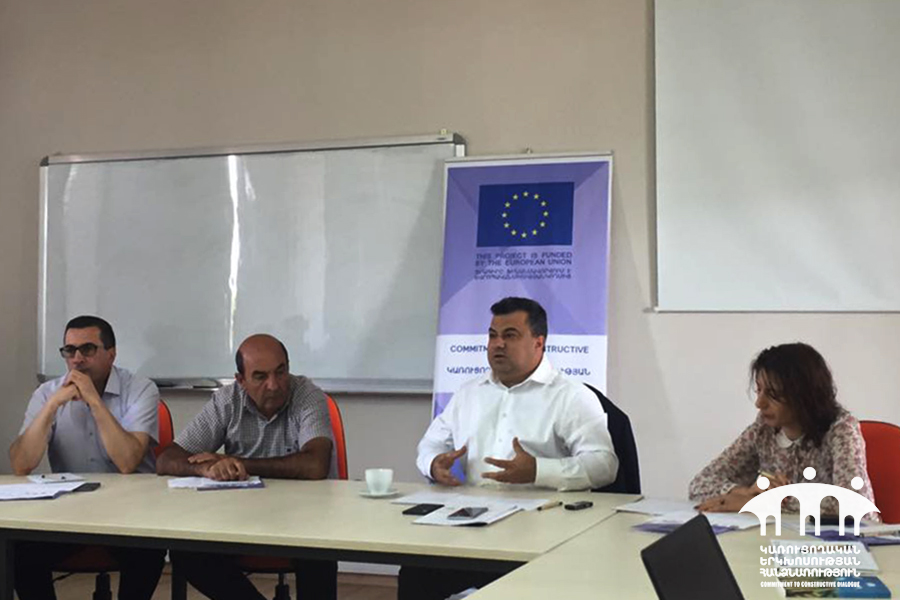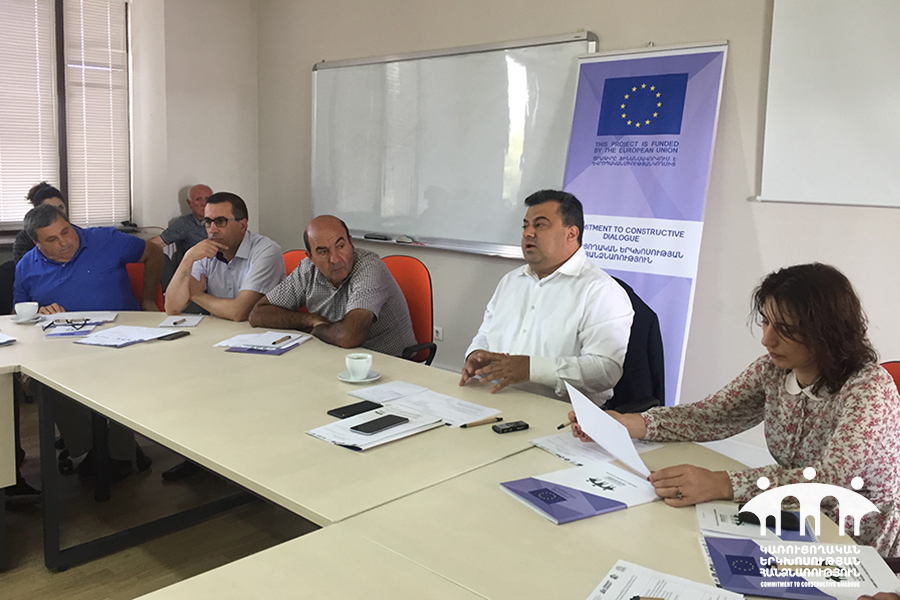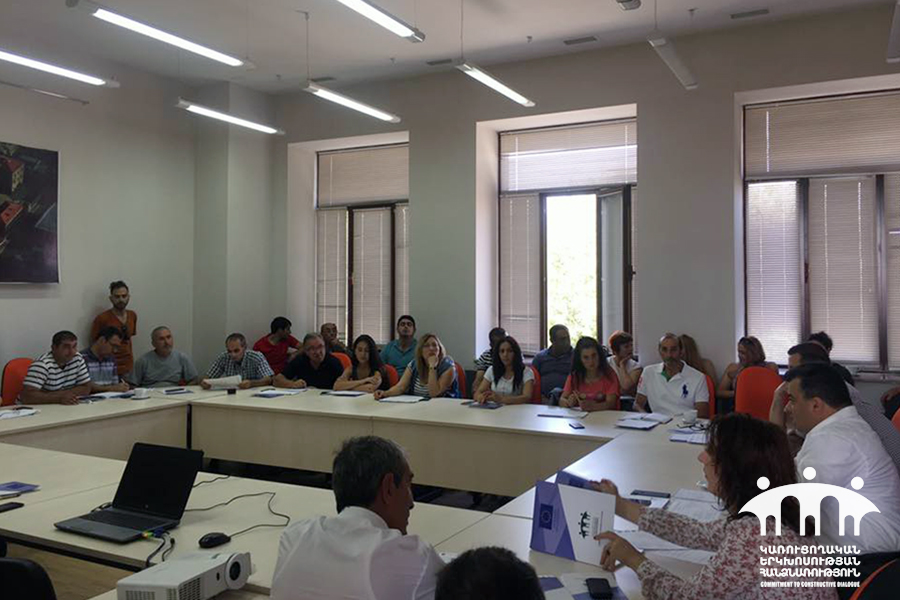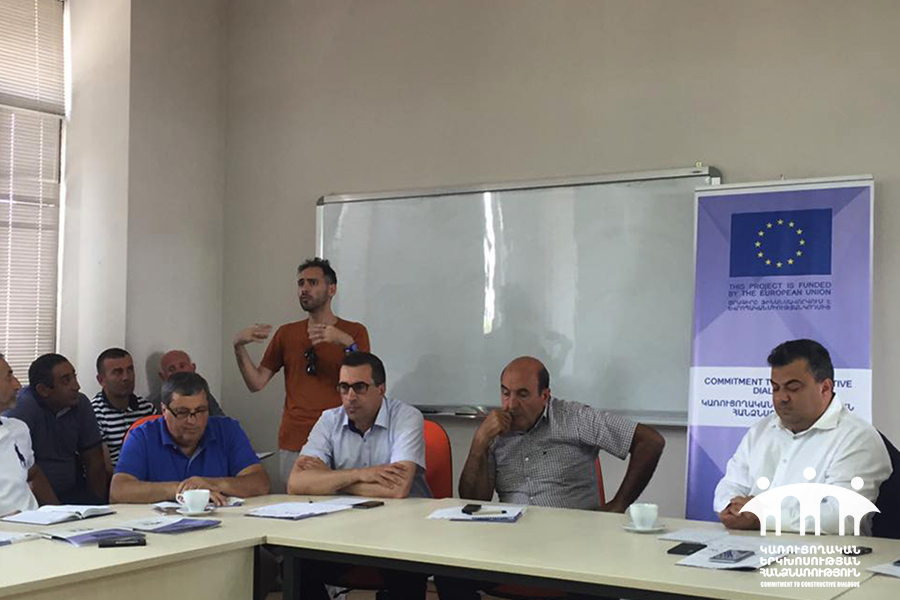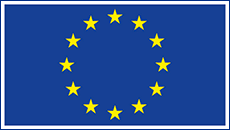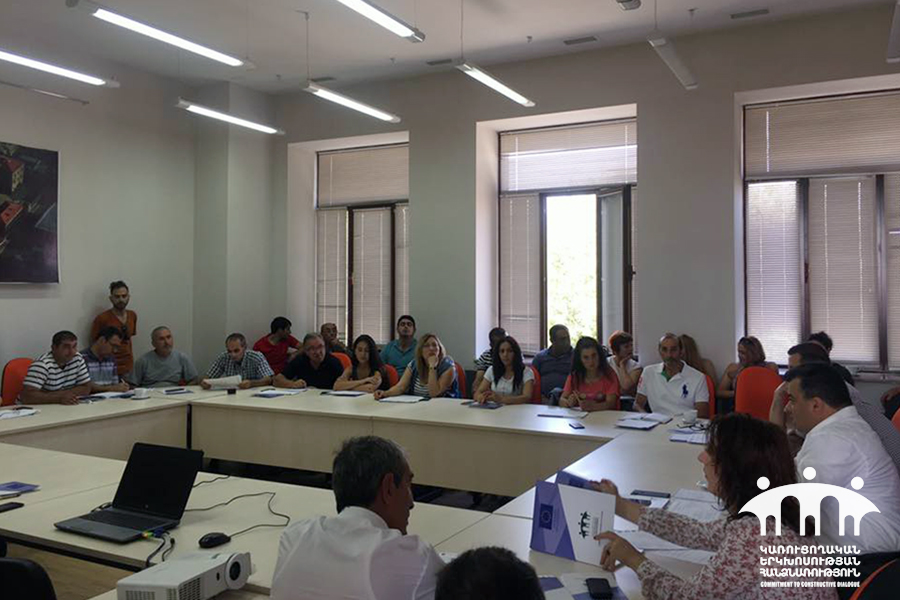
How can the cooperation between NGOs and local government be made more efficient? How can communities be endowed with more powers? How can community heads’ behaviour be changed? These were the questions discussed during the local government-CSO seminar-discussion held at the Gyumri Technology Centre.
On 24 August 2018, an LSG-CSO seminar-discussion was held at the Gyumri Technology Centre in the scope of the “Commitment to Constructive Dialogue” project funded by the European Union. The topic of the discussion was: “New Opportunities of Cooperation between Local Authorities and Civil Society Organisations (CSO), CSOs’ Participation in Local Self-Government in the Context of Local Governance and Territorial Administration Reforms in the RA.”
During the discussion, Emin Yeritsyan, the President of the Union of Communities of Armenia, expressed a concern on the lack of participatory self-governance: “Formally speaking, we have formed a de-centralised system but we don’t have real de-centralisation as more than 90 % public resources go into the pockets of central government.
The President of the Union of Communities of Armenia attached great importance to close cooperation between NGOs and local authorities as they need one another. “The Shirak Region is rich in NGOs and project implementation experience. Thus, it would be better to understand what the ways of assuming powers by NGOs are, as regards local authorities. Communities can start delegating separate powers to NGOs today, so as to start working together with strong powers,” he said.
Emin Yeritsyan assured them that communities are in great need of established NGOs and in some cases has to dedicate money from its budget to allocate grants to NGOs.
During the discussion, the powers of heads of marz administrations were also discussed. Emin Yeritsyan noted, “The role of marz administrations is clearly defined in the Constitution. Today, they have authorities only in the field of territorial administration. The first president’s decrees on public administration used to work in marzes. After the new president assumed his post, these decrees are not valid anymore. Thus, from that day on, the activities of heads of marz administrations is somehow outside the legal field.” According to Yeritsyan, another problem is that our state agencies had left out the matter that after the constitutional amendments these legislative changes should have been made, too.
Yeritsyan said that in many cases the new heads of marz administrations do not know how they must behave as there is no law for them to read and see what their authorities are. Thus, they continue with the same approaches and model of what they have seen before.
Sofya Hovsepyan, the Deputy Head of Shirak marz administration, noted in this regard: “I assure you that at this moment the marz administration does not use the working style of the previous cabinet. We abide by the law and do not follow the previous model. I certainly know what we can do and what we can’t. However, there are laws subject to be changed, but that is another question.”
The work of city councils was also touched upon during the discussion. Recommendation were made to make NGOs a part of local self-governance, as well as for communities to apply to NGOs for expert help.
The participants were worried about the controversial agenda of city councils which can organise big discussions even on policies.
Another problematic issue is that no new power have been given to communities over the past ten years. Yeritsyan said, “Over the past ten years, many legislative changes have been made, but only on the paper. No new powers or funds were given to local authorities.”
Gharib Harutyunyan, the President of the “Compass” Scientific, Educational and Advisory Center from Gyumri, said, “The underlying cause of why the local self-government system is not established must be searched for in the electoral system.”
The “Commitment to Constructive Dialogue” project is implemented with the financial support of the European Union by a Consortium of civil society organisations, which are the Armenian Lawyers’ Association (lead organisation), Agora Central Europe (NGO based in the Czech Republic), the Armenian Centre for Democratic Education-CIVITAS, the International Centre for Human Development, the SME Cooperation Association and the Union of Communities of Armenia.
The overall objective of the project is to enhance the influence of CSOs on the public policy process, and the specific objectives are to strengthen the ability of CSOs to build coalitions and focus on constructive and strategic policy engagement with local and central government partners.
The project will provide sub-grants to CSOs and CSO coalitions for developing public policies and bringing significant changes in the 9 target sectors selected within the project, including those of justice, human rights, public finance management, business, education, and the social sector: social inclusion of children with disabilities, agriculture, economy, and energy.


